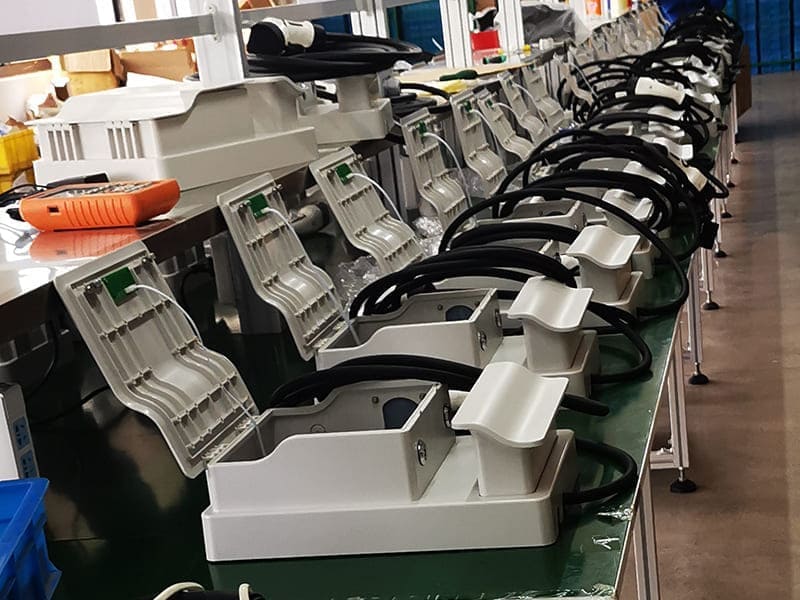Choosing an EV charger box can feel overwhelming. This guide simplifies the process significantly. We explain key features and considerations. Consequently, you will make a confident decision. First, understand your specific charging needs.
What is an EV Charger Box?
An EV charger box supplies power to vehicles. It manages electricity flow safely. Essentially, it is your personal fueling station. Different types offer various charging speeds. Therefore, selection requires careful thought.
Key Selection Factors
Several factors influence your choice. Firstly, consider charging speed requirements. Secondly, evaluate electrical capacity available. Thirdly, determine installation location specifics. Additionally, think about future proofing.
Moreover, assess smart connectivity needs. Also, review safety certifications carefully. Finally, compare pricing and warranties.
Types of EV Charger Box Options
Two main categories exist: AC and DC. An AC EV charger box is common. It is perfect for overnight charging. It typically offers 7kW to 22kW power.
Alternatively, DC fast EV charging station is faster. It is ideal for quick power boosts. Units deliver 20kW to 30kW output. However, they cost more initially.
Residential Charging Solutions
For homes, an AC EV charger box suffices. The 7kW model is popular. It provides adequate overnight charging. The 11kW unit charges faster. The 22kW version needs three-phase power.
Consider compact DC options too. The 20kW EV charging station box is powerful. The 30kW model offers rapid charging. But electrical upgrades may be necessary.
Commercial Applications
Commercial settings need robust solutions. Aegen’s DC EV charging station box serves multiple locations:
Shopping Malls: attract customers effectively
Office Buildings: support green initiatives
Highway Rest Areas: enable long trips
Public Spaces: enhance accessibility
Residential Complexes: serve multiple residents
Hospitals: ensure reliable transport
Parking Facilities: generate extra revenue
AC EV Charger Ideal Uses
Aegen’s AC EV charger box excels in:
Private Garages: overnight home charging
Apartment Parking: shared community use
Corporate Lots: employee vehicle charging
Public Car Parks: longer duration stays
Essential Features to Consider
Modern EV charging station box offers smart features. Connectivity enables remote monitoring. Scheduling allows off-peak charging. Also, consider authentication methods.
Moreover, review safety certifications. Additionally, check durability ratings. Furthermore, ensure software update capability.
Why Choose Aegen?
Aegen is a leading Chinese manufacturer. They produce reliable EV charging station box units. Specifically, they offer factory-direct pricing. This ensures competitive costs.
Moreover, Aegen provides custom solutions. Their technical team supports projects. They guarantee compatibility and performance.
Installation Considerations
Professional installation is crucial. Certified electricians ensure safety. They handle permits and inspections. Additionally, they assess electrical capacity.
Furthermore, consider future expansion. Plan for additional charging points. This approach saves money long-term.
Cost Analysis
Prices vary based on type. AC EV charger box costs $200-$500. DC units range from $1,200-$10,000.Installation costs are calculated based on local labor rates and policy requirements. How to Choose the Right EV Charger to Buy?
Additionally, include operational costs. Maintenance and electricity matter. Also, explore available incentives.
Making Your Decision
Evaluate needs systematically. Compare products thoroughly. Read customer reviews carefully. Test usability whenever possible.
Choose a reliable partner like Aegen. They offer quality and support. Select the EV charging station box that meets your requirements perfectly.
Conclusion
Choosing an EV charger box is important. It affects your EV experience significantly. Consider all factors discussed above. Partner with experts like Aegen. Enjoy convenient and reliable charging daily.

